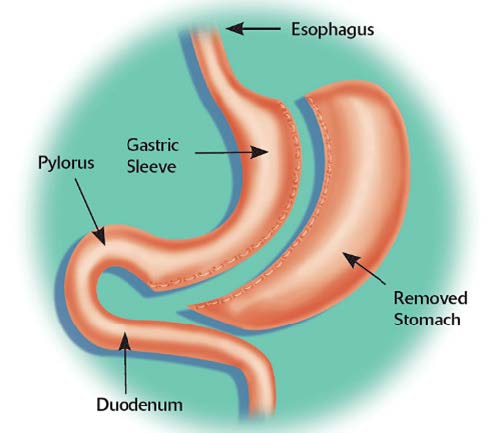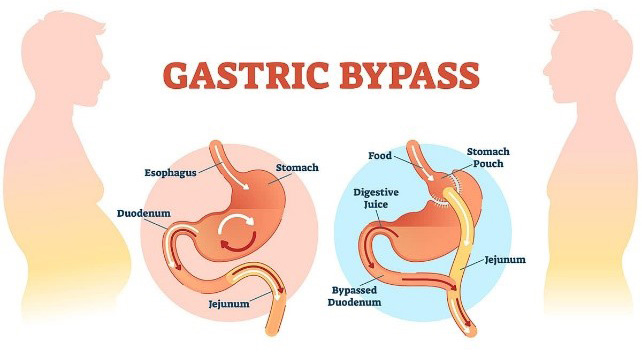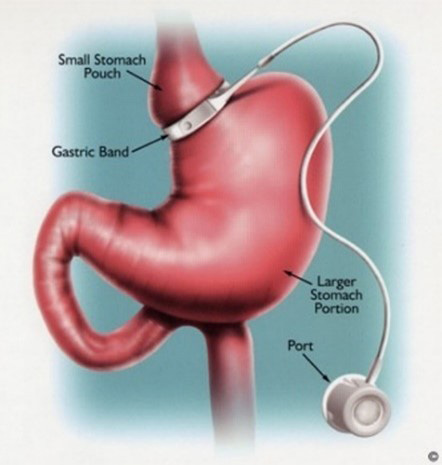Find your Healthy Weight Within with Western Wisconsin Health
Based on your weight-loss goals you have options at Western Wisconsin Health. Obesity is complex, that often requires treatment beyond lifestyle modifications. Bariatric surgery can help you lose weight and significantly improve your health and well-being. Get started by calling 715-684-1111 to learn more and schedule a consultation today.

Contact Us
If you think you would benefit from weight-loss surgery or if you have any questions about our program, please contact us.
Western Wisconsin Health
Bariatric Coordinator
Tammy Brant at
715-684-1196
Location
Western Wisconsin Health Main Campus
1100 Bergslien Street
Baldwin, WI 54002
Wendy Liu, D.O. – Bariatric Surgeon
Dr. Wendy Liu, DO is a fellowship trained bariatric surgeon. After finishing her general surgical residency, she decided to pursue additional training as she found it very rewarding to see such dramatic improvements in a patient’s overall health from a bariatric operation. Surgery can be very daunting. Dr. Liu’s job is to help guide you along the way and ensure a fast and healthy recovery. Let your weight loss surgery be a path forward and a jumpstart to your healthy life journey!

Kathleen Findlay, MD, MPH – Integrative Medicine Physician
Dr. Findlay is board certified in Lifestyle Medicine, a medical specialty that uses evidence-based, whole-person, prescriptive lifestyle changes to treat chronic conditions. The Simple Health program, a collaborative effort between Dr. Findlay, Cheri Rott-Registered Dietitian, and Lynn Huiskamp—Board Certified Health and Wellness Coach, assists all weight management patients in making sustainable changes to support their best health.

Danielle Lausted, MS RDN CD – Registered Dietitian Nutritionist
Danielle Lausted is a Registered Dietitian that has been working with patients seeking Bariatric Surgery since 2006. Her passion is providing patients with education and counseling as well as providing the highest quality of personalized care. Her job is to help guide you along the way to ensure that you are meeting your nutrition based goals throughout your weight loss journey.

Tammy Brant – Care Coordinator
Tammy Brant earned her RN from Cloud County Community College in Kansas. With a diverse nursing background and a strong passion for gastrointestinal care, Tammy brings extensive experience in various clinical and surgical settings, including assisting with GI procedures such as EGD’s, Colonoscopies and ERCPs. In her role as General/GI Surgery Care Coordinator, Tammy is dedicated to preparing patients for surgery by providing essential information, addressing their questions and concerns, and offering support to help guide them smoothly through their procedure and recovery.
Minimally Invasive Sleeve Gastrectomy

- We cut your stomach from the shape of a football down to the size of a banana
- It helps with weight loss in two ways:
- There is less room for food to fill your stomach. This will make you full more easily.
- The part of the stomach that we remove normally sends signals to your brain telling you that you’re hungry. After this surgery, your hunger drive will be decreased.
Advantages:
- Less risky of an operation
- Minimizes the size of your stomach to prevent overeating
- Less risk of vitamin and mineral deficiencies
- Improves comorbidities such as high blood pressure, sleep apnea, diabetes, and polycystic ovarian syndrome
- Options are available if weight regain is seen after surgery
Disadvantages:
- May worsen reflux or heartburn symptoms
- Some patients may notice less weight loss compared to those who have undergone a gastric bypass
Minimally Invasive Roux-en-Y Gastric Bypass

- We create a small stomach pouch and reroute your intestines so that food is absorbed less into your body
- It helps with weight loss in two ways:
- We make a small stomach pouch so you have less room to fill
- We bypass a portion of your small intestine so that the excessive calories are not absorbed into your blood stream to become stored as fat
Advantages:
- Improves comorbidities such as high blood pressure, sleep apnea, diabetes
- Actually helps to improve heart burn symptoms. It is one of the treatments of refractory reflux
- Some patients may notice more weight loss when compared to the sleeve gastrectomy procedure
Disadvantages:
- Has more risk of vitamin and mineral deficiencies in the short and long term
- Riskier operation
- Less options are available for those patients who do notice weight regain after surgery
- Higher risk of dumping syndrome
Gastric Band REMOVAL

- If your band is causing your problems such as inability or difficulty swallowing, it is time to discuss the possible need to remove your lap band
- Malposition of the lap band may cause erosion into your esophagus
- The long term placement of a nonfunctional lap band can cause dilation of your esophagus leading to the improper motility and dysfunction
Note:
There are other types of bariatric metabolic surgery such as duodenal switch, or SADI-S (Single anastomosis duodeno–ileal bypass with sleeve gastrectomy). Unfortunately, we do not offer that here at this program. If these operations are what you are interested in, we would be happy to refer you to another bariatric practice.
BARIATRIC SURGERY REQUIREMENTS
Here is the list of appointments insurance requires to proceed with bariatric surgery.
SIMPLE HEALTH
To make sure you have a holistic view and ensure sustainable lifestyle changes to your weight loss journey.
BEHAVIORAL HEALTH
To ensure you are mentally prepared and ready to undergo the bariatric surgery process.
DIETICIAN
To prepare you to eat differently after surgery and also to help maintain your weight after surgery.
GASTROENTEROLOGY – UPPER ENDOSCOPY
To make sure there is nothing abnormal about your stomach anatomy.
PRIMARY CARE PROVIDER
To make sure your PCP is in agreement to proceed to bariatric surgery.
LABORATORY TESTING
To get a baseline testing of your body function before undergoing any metabolic surgery.
+/- ENDOCRINOLOGIST
If you have diabetes or other endocrine dysfunctions, it is important that we discuss plans for bariatric surgery with your endocrinologist.
Do’s
- Focus on protein first at each meal. Utilize approved protein shakes in between meals to help you reach your daily goal for protein of 60-80 grams.
- Maintain your hydration by consuming at least 64 oz of fluids daily. Make sure to stop drinking fluids 15 minutes before eating your meal and resume drinking fluids 30 minutes after your meal.
- Remember you must continue to take your vitamins daily for the rest of your life. You are at a higher risk for deficiencies post-surgery. It is important to consume a MVI with Iron twice daily, Calcium Citrate 500-600 mg twice daily, Vitamin B12 1000 mcg/day, and Vitamin D3 5000 IU/day.
- Be consistent with eating 3 meals per day, and spacing meals out every four to six hours. Consume snacks only if physically hungry in between meals and choose something that is nutrient dense such as string cheese, fruit, veggies, and hummus. Talk with your dietitian for other ideas.
- Eat slowly, chewing each bite to an applesauce consistency. Meals should take 20-30 minutes to consume.
- Exercise regularly. It is important to establish an exercise routine. Aim towards an eventual goal of 30-60 minutes most days of the week to help promote and maintain weight loss. Add strength training 2 times a week for 20 minutes to help maintain muscle.
- Look at the non-scale successes like your clothes fitting better, enhanced mobility, improved health markers, reduced joint pain, better sleep, and increased energy levels.
- Keep coming to your post-surgery appointments with your weight loss team. It’s important to check in with the team to make sure all is well with you physically and mentally. The team is here to provide you with additional support and resources pertaining to your weight loss journey needs.
- Have your labs drawn as recommended by your team. It is important to continue to check your lab values, especially pertaining to your vitamin and mineral levels to help prevent nutrient deficiencies.
Don’ts
- Starve yourself, it is important that you eat to lose weight. When you don’t eat enough, your metabolism slows down and your body starts to preserve energy.
- Deprive yourself which can lead to cravings and binge eating. Remember to utilize the rule of eating in moderation.
- Expect a quick fix. Losing weight and keeping it off requires lifestyle change, which takes time and commitment.
- Drink too much alcohol. It is advised to avoid alcohol for at least the first-year post-surgery. If you do incorporate alcohol back in, do so in moderation. Alcoholic drinks could be high in calories. They could also reduce your nutrient absorption and slow down your metabolism.
- Consume foods/beverages that are high in refined sugars and are processed. These foods tend to be high in calories and typically low in nutritional value. These foods should only be consumed in moderation. Instead choose fruit, veggies, and whole grains.
- Eat when you are not physically hungry. Check in with your body before you reach for a snack. Ask yourself if it is related to stress, boredom, or just because the food is available.
- Skip meals, especially breakfast. Eating breakfast fills you up and gets your metabolism going. It helps you stay ahead of hunger to help prevent eating more food later in the day.
- Focus only on calories in your diet. Cutting calories is important for weight loss, however you want to make sure you consume enough protein and complex carbohydrates to generate energy and build/maintain muscle with weight loss.
- Don’t compare yourself to others. Everyone loses weight differently. Losing weight with a friend or group can be supportive, however don’t make it a competition.
COMING SOON!
Providers

Wendy Liu, D.O.
Bariatric Surgeon
Western Wisconsin Health Main Campus


